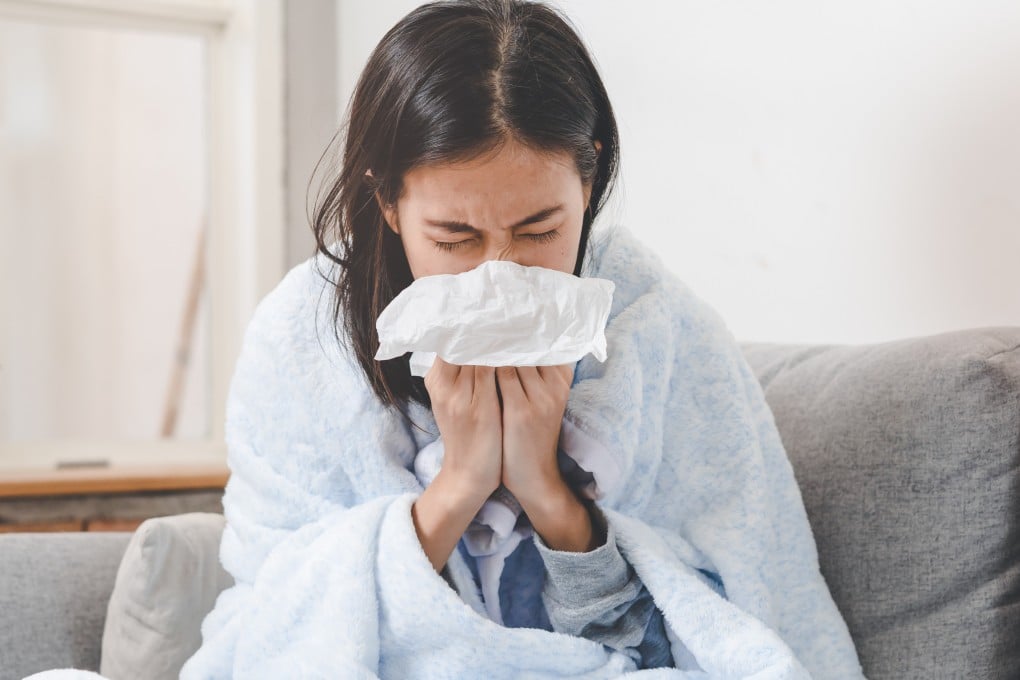Advertisement
Explainer | The common cold: quick facts about this virus – its symptoms and how to treat it, especially amid medication shortages
- The No 1 piece of advice from experts if you catch a cold? Stay at home and rest to prevent spreading the virus and to allow the body to recover
- Pain medications are in short supply, but you can treat a common cold by keeping warm, drinking lots of clear fluids – and getting plenty of sleep
Reading Time:3 minutes
Why you can trust SCMP
0

If you didn’t already know by the cacophony of sniffles and coughs in public places, cold season is in full swing.
With mitigation measures from the Covid-19 pandemic having stifled transmission of other respiratory viruses, we are seeing an influx of cases of flu and RSV, or respiratory syncytial virus, combined with a shortage of over-the-counter pain medication.
If you’re sick, health experts say it’s important to stay at home and rest to allow the body to recover and prevent transmitting the virus to others.
But some cold symptoms can last for weeks. So how do you know when it’s the right time to return to daily activities? Here’s what experts say.

Common cold symptoms
Can you get a fever with a cold?
Advertisement